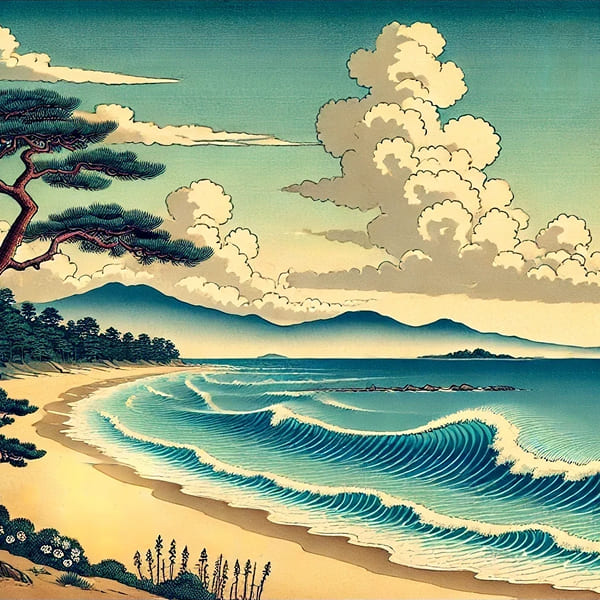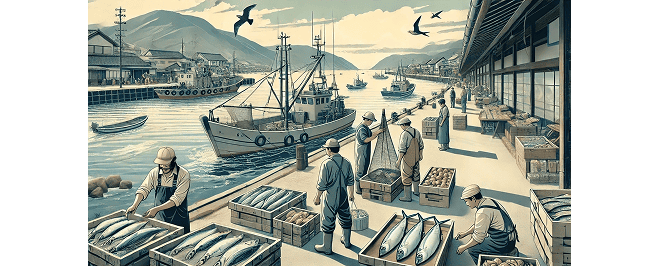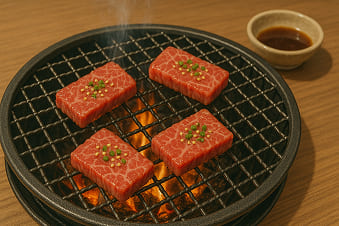Marine Day: Japan’s National Holiday Honoring the Sea

Imagine standing on a summer shore—waves lapping and the scent of the sea in the air.
In Japan, this is the spirit of Marine Day (Umi no Hi), celebrated every third Monday of July. It’s a national holiday dedicated to honoring the ocean, appreciating its gifts, and reflecting on Japan’s deep identity as a maritime nation.
With over 14,000 islands, Japan’s culture, cuisine, and economy have always been shaped by the sea. Marine Day invites everyone—locals and visitors alike—to celebrate this connection through festivals, beach outings, and ocean-friendly activities, while also raising awareness about marine conservation in an age of climate change.
Origins and Historical Background of Marine Day
Originally called Marine Memorial Day, the celebration marked July 20, 1876, when Emperor Meiji returned safely to Yokohama by ship after visiting the Tohoku region. This event was later commemorated as a public holiday in 1996 under the name "Marine Day." In 2003, the date was shifted to the third Monday of July under the “Happy Monday” initiative to encourage long weekends and domestic travel.
As an island country, Japan’s survival and prosperity have long depended on the ocean—for transportation, fishing, international trade, and cultural exchange. To deepen public understanding and appreciation of the sea, the entire month of July—including Marine Day—has been designated as "Marine Month" (Umi no Gekkan) since 2003, featuring various ocean-themed events and educational campaigns throughout the country.
Why the Ocean Is Vital to Japan

Japan’s identity and economy are inseparable from the ocean. As an island nation surrounded by the sea on all sides, Japan has developed a deep reliance on marine resources, transportation, and coastal environments. Below are three key areas where the ocean plays a critical role.
Fisheries & Seafood: The Backbone of Japanese Cuisine
Marine resources are at the heart of Japanese food culture. From sushi and sashimi to miso soup with seaweed, fish, shellfish, and sea vegetables are essential ingredients in everyday meals. Japan is one of the world’s largest consumers of seafood, and coastal communities depend heavily on local fisheries for their livelihoods.
Traditional fishing practices—such as ama (female free divers) collecting shellfish—reflect centuries of coexistence with the sea. Modern aquaculture also plays a key role in meeting demand while addressing sustainability.
Global Trade: Lifeline of the Japanese Economy
With limited natural resources on land, Japan has long relied on maritime trade to fuel its economy. Over 99% of Japan’s imports and exports by volume are transported by sea, including energy resources like oil and LNG, raw materials, and manufactured goods.
Major ports such as Yokohama, Kobe, and Nagoya serve as vital hubs in the global logistics network. The country’s maritime infrastructure is not only essential for business and manufacturing but also for maintaining national resilience in times of crisis.
Tourism & Nature: Treasures Along the Coastline
Japan’s extensive coastlines, which stretch over 29,000 kilometers, offer stunning natural beauty and rich biodiversity. From the coral reefs of Okinawa to the rugged cliffs of the Sanriku Coast, these areas attract both domestic and international tourists.
Coastal destinations like Enoshima, Shirahama, and Miyako Island are popular for beach activities, snorkeling, scenic views, and traditional festivals. Marine parks and aquariums also play a role in education and conservation. Tourism tied to the sea not only supports regional economies but also fosters appreciation for the ocean’s ecological importance.
Celebrations and Events on Marine Day
Marine Day is widely celebrated with ocean-related events and activities across Japan, especially in coastal cities. Because the holiday aligns with the beginning of summer vacation, many families take seaside trips, enjoying Japan’s beautiful coastlines and ocean views.
Notable Marine Day Events Across Japan
To mark this national holiday, many regions host special events that celebrate Japan’s deep connection to the sea:
-
Nagoya Port Festival (Aichi)
Held every year on Marine Day, this lively festival features fireworks, live performances, parades, and maritime exhibitions around Nagoya Port. As one of the region’s major summer events, it draws large crowds who gather to celebrate the ocean and enjoy the festive atmosphere by the waterfront.Official Website (Japanese only)
For up-to-date schedules and details, please note that this site is in Japanese. -
Umi Haku – Ocean and Japan Project Expo (Yokohama)
Held around Marine Day each year, this large-scale educational event takes place at Yokohama’s iconic Red Brick Warehouse. It features interactive exhibits, marine conservation booths, ocean-themed games, and live demonstrations aimed at children and families. The event promotes ocean literacy and supports the values of Marine Day by encouraging people to learn about and protect the sea.
Official Website (Japanese only)
For up-to-date schedules and details, please note that this site is in Japanese.
- Marine Carnival in Kobe (Hyogo)
Taking place around Marine Day at Meriken Park in Kobe, this interactive event invites visitors to enjoy free boat rides, hands-on workshops, and family-friendly marine activities. The carnival emphasizes both the fun and the responsibility of enjoying the ocean—offering safety lessons, environmental exhibits, and opportunities to learn about maritime culture in a festive waterfront setting.
Official Website (Japanese only)
For up-to-date schedules and details, please note that this site is in Japanese.
In recent years, Marine Day has also been linked to environmental education and efforts to achieve the Sustainable Development Goals (SDGs), particularly those focused on protecting marine life and ecosystems.
A small break — a little side note
While Marine Day celebrates Japan’s deep connection to the sea, there’s another “day” that shows the country’s love for meat—with a touch of humor.

On the 29th of every month, Japan playfully observes “Niku no Hi” (Meat Day). This quirky tradition is based on a simple pun:
- 2 = ni
- 9 = ku
Together, “ni-ku” sounds like "meat" (肉) in Japanese.
Although it’s not an official holiday, many supermarkets and restaurants use the day to offer special deals on meat, especially for yakiniku (Japanese BBQ) fans. You might also spot social media posts with the hashtag #肉の日, showing off delicious grilled dishes.
It's a light-hearted example of Japan’s unique fondness for wordplay-based celebrations—turning numbers into reasons to enjoy good food with family and friends.
Final Thoughts: A Nation Shaped by the Sea
This national holiday is more than just a mark on the calendar. It’s a reflection of Japan’s maritime soul — a country whose past, present, and future are shaped by the ocean. From the **fish on the table to the ships in the harbors, from the festivals by the sea to the efforts to protect marine life, Marine Day brings these threads together in a celebration of gratitude and awareness.
As Japan looks to the future in an age of environmental challenge, Marine Day invites both locals and visitors to honor the sea, enjoy its beauty, and take part in protecting it for generations to come.
The ocean’s story is Japan’s story — and Marine Day is your invitation to be a part of it.